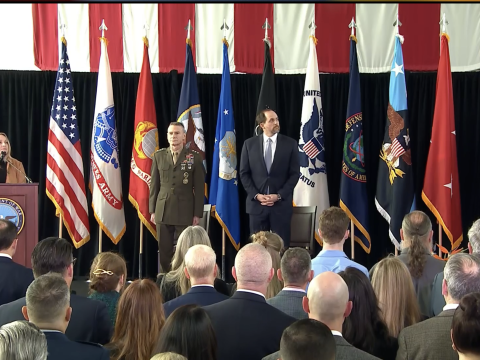Disruptive By Design: Leaders and Teams Share the Responsibility for Success
How might you define the term leader? When asked years ago as a graduate student, I decided to give more credit to the individualistic, irreplaceable qualities of a leader. For instance, beauty is in the eye of the beholder in the same way music is either noise or intrinsically inviting, depending on the listener. Similarly, a leader and their associated style may either deter or attract followers.
I always felt the elephant in the room was the difference between leadership and manipulation. Simply stated, leadership lacks the negative connotation and aspects of manipulation. Leadership should sculpt, build and enlighten. Manipulation lacks motivation for the greater good. From my estimation and experience with work, class and personality at that time, the most important leadership skills were possessing and practicing self-discipline and having ethics and values of a personal and professional nature. Also, cultivating a desire and ability to relate to followers and nonfollowers is most important for the leader’s skill set. Among all the leadership behaviors, styles, traits and skills, the most important to me were the charismatic and transformational leadership styles, as each includes vital traits necessary for the larger set of leaders likely to approach increasingly competitive and varied contexts.
Another controversial topic of leadership is the matter of nature or nurture. Sometimes people ask whether leadership skills can be developed in someone who doesn’t inherently have them. To me, leadership skills are not inherited but captured from growing research, personal observation and testimony of other successful leaders. And I strongly believe leadership skills can be formed and adroitly developed in someone, as we are all malleable. Our exposure to the context, such as a crisis, provides an opportunity to develop leadership skills derived from a text, trial by fire or other means of learning. Building on my rationale, however, a person must want or need to develop the skills to be a good leader.
Shifting to a wider focus is the question of how leaders and subordinates should be addressed, as this sets the tone in relationships. In my experience, a leader should be addressed by an agreed-upon title or preference, hopefully created from a two-way exchange. Often, defaults are “Ms./Mr.” followed by the last or first name. Since becoming a “Doctor,” I have noticed an interesting change in people’s tone, expression and mannerisms, particularly from those who knew what it took to achieve the title. This is coupled with the minority effect and unexpected trends.
Once introductions are made, socialization between leaders and subordinates begins. A leader should have social interaction with subordinates. Not as best friends, but appropriate socializing fosters relationships, awareness, trust and bonding through communication.
The hallmarks of a healthy, effective, efficient team include cooperation, understanding, supportiveness, leadership and followership relationships. At times, it may be difficult to agree upon all issues that arise, but leaders and managers are necessary to balance one another. And with sufficient effort, leaders can build strong teams featuring inclusivity, diversity, equality and accessibility. A leader can leverage the diversity of individuals by fine-tuning skills, showing recognition and using trial and error to cultivate a strong team.
In my teams, we have shifted responsibilities according to existing talents, but we also allow individual interest to steer the choice of duties to bring about growth and challenge. Leaders need to evaluate the health of the workgroup using subjective and objective measurements. Moreover, subordinates have the capacity to energize or erode a leader.
Finally, a lesson learned: Remain neutral about first impressions until proven otherwise from a primary source and individual observations and experiences. Life is continuous learning and growth, personally and professionally. Unlike textbook knowledge, life experience results in discovering the endless dimensions of individuals.
Jennifer Miller is a business operations manager for the Defense Health Agency. She is a certified project management professional, certified government financial manager, certified defense financial manager with acquisition specialty and a member of the American Society of Military Comptroller’s Washington Chapter.
Disclaimer: Opinions, conclusions and recommendations expressed or implied within are solely those of the author. They do not necessarily represent the views of the U.S. Defense Department or any other U.S. government agency.





Comments